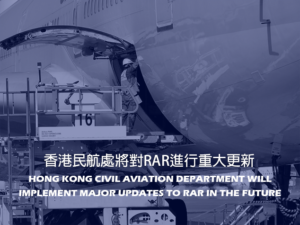Supply Chain Security compliance could enhance competitiveness in US market
January 27, 2007 – Press Release
Supply Chain Security compliance could enhance competitiveness in US market
Product compliance is definitely not a new topic to the trading community. Importers and exporters have to comply with import and export rules and regulations in their daily businesses. For some categories of goods such as food and medicine, which are subject to stricter import control, relevant certificates and documents have to be produced so as to clear goods from Customs.
A fact sheet on the accomplishments by US Customs and Border Protection (CBP) in 2006 was released recently. It demonstrated the US authorities endeavour to ensure that cargoes reaching the US border are free of any risks associated with terrorism after the 9/11 incident and it implies that the compliance on supply chain security has already been one of means to enhance competitiveness in US market.
CBP Accomplishment in 2006 on Strengthening Supply Chain Security*
- As part of our effort to ensure cargo is thoroughly screened before arriving at U.S. sea ports, ten additional Container Security Initiative (CSI) ports were opened in Fiscal Year 2006; bringing the total number of operational CSI ports to 50 and covering 81.7% of U.S.-bound maritime containers. Twenty-eight additional customs administrations have committed to joining CSI and are at various stages of implementation.
- This past year, the Customs-Trade Partnership Against Terrorism (C-TPAT) program experienced a significant increase in the number of certified members and increased the number of validations three-fold over FY 2005. Under the C-TPAT program, importers who meet certain security standards are provided expedited processing benefits. This enables us to facilitate legitimate trade while focusing our resources on unknown or high-risk shipments.
- In 2006, the President signed into law the SAFE Port Act. This act, among other things, reinforces our layered approach to securing the international maritime supply chain, and codifies into law, the Container Security Initiative and Customs-Trade Partnership Against Terrorism.
- In Fiscal Year 2006, we developed a comprehensive strategy for combating “gate-outs” (any shipment with a CBP security hold in place that leaves a terminal compound without being inspected) at all ports of entry, which includes outreach as well as enforcement activities.
- We implemented a collaborative CBP/Coast Guard operations program focused on joint targeting, vessel boardings, shared information, training, and professional exchange.
- We conducted special operations with the U.S. Department of Agriculture and the Fish and Wildlife Service, to improve our ability to detect prohibited agricultural products and identify agro-threats and pathways.
What is the hottest compliance relevant to the logistics players in Hong Kong?
Customs-Trade Partnership Against Terrorism (C-TPAT)
In Hong Kong, the international supply chain partners are facing challenge to boost up their existing security systems and procedures to fulfill C-TPAT security requirements.
The C-TPAT program sets security standards for all links of the supply chain, including facilities, conveyances, personnel and containers. Launched in November 2001 with seven major importers, C-TPAT now has more than 5,800 certified partners who have demonstrated that they meet the program’s minimum security criteria, have passed vetting through CBP’s law enforcement and trade databases, and have an established import history. Of these almost 4,000 have been validated.
In Hong Kong, there are a number of logistics players, including the international freight forwarders, CFS warehouse companies, and logistics companies face challenge to compile with C-TPAT requirements from their clients or their overseas C-TPAT certified agents/headquarter, including:
- Conduct supply chain security risk assessment and complete the questionnaires for their clients.
- Develop and implement security procedure and practice in their supply chain (including the control on the subcontractors).
- Conduct security training for all staffs and contractors to familiar with the procedures.
- Review and control the contractor’s performance.
What made the top management trouble were the inspections performed by their clients in US or the validation conducted by US CBP inspectors. They all admitted that with the compliance on C-TPAT, they will enhance their competitive advantages and gain the new contracts!
*Reference: US Customs and Border Protection http://www.cbp.gov
About Alliance Management Consulting Limited (AMC)
AMC, the solely commercial institute certified by HK CAD to conduct RAR (ICAO annex 17) security training, with expertise in providing management consulting and training services, specializing in Supply Chain Industry. We are also the pioneer of providing logistics security consultation (TAPA, CSI, ISO 27001, RAR, C-TPAT, ISO…) in Shanghai, Beijing, Xiamen & Hong Kong in China, Singapore, Taiwan, Japan and more in Asia. Our client includes: IBM, KWE, Lucent, MOL, NEC, NNR, TNT, Yamato, & other 250 logistics companies. For more information, please visit us at www.alliancealliance.com


